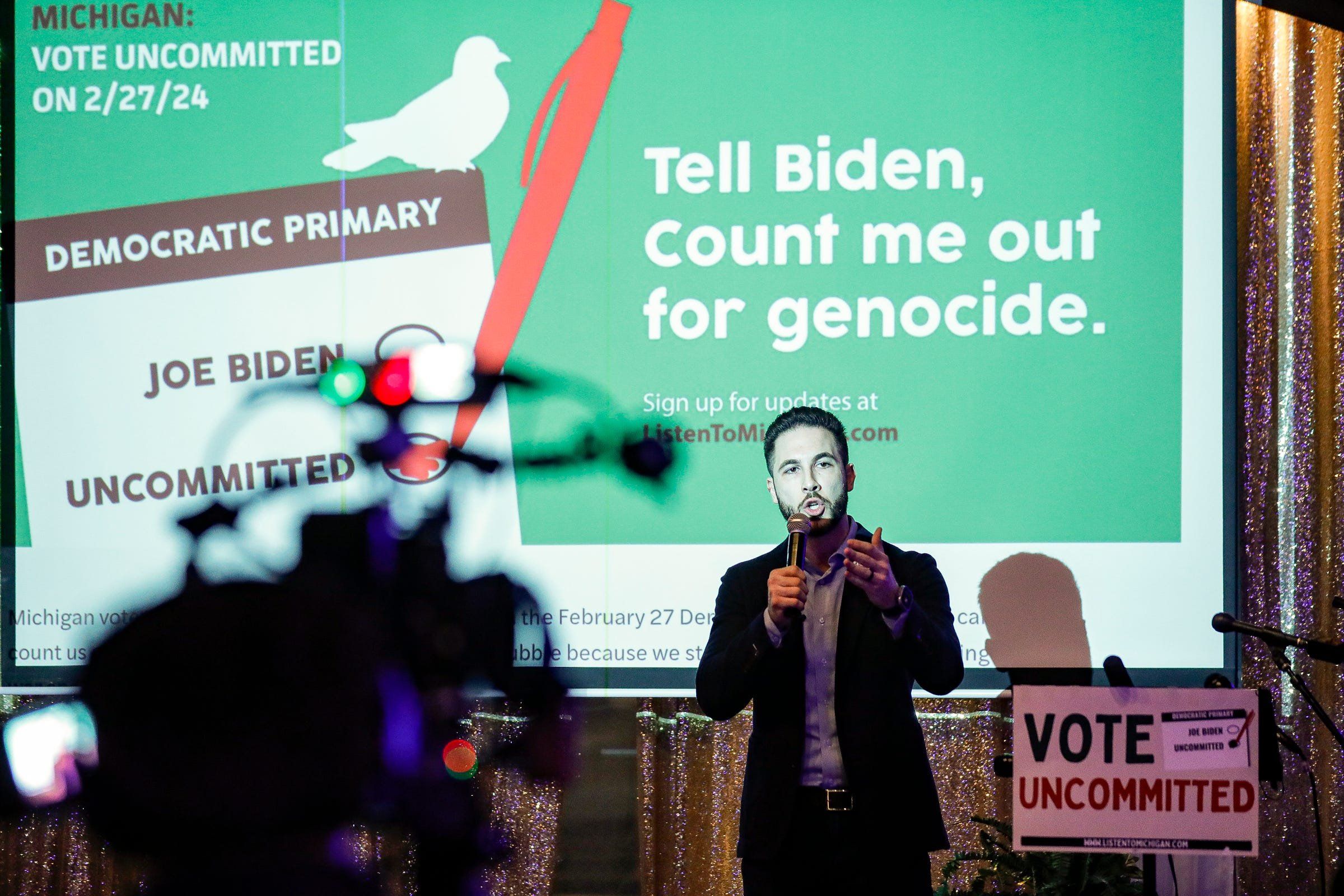February 28, 2024
Both Donald Trump and Joe Biden won their primaries in Michigan yesterday, but the vote revealed vulnerabilities for Joe Biden that could come back to haunt him in November.
Why Michigan mattered: It was Donald Trump’s victory over Hillary Clinton in Michigan that sealed the 2016 election, and Joe Biden’s triumph over Trump there and in other Upper Midwestern states in 2020 that decided the election. In all probability, it will play a decisive role this November
Michigan is also home to the largest Arab-American population in the United States. After a concerted campaign in protest of the Biden administration’s policy toward Israel and Gaza, 13 percent of Democratic primary voters chose “uncommitted” last night. In Dearborn and Hamtramck, two of the Michigan cities with the highest concentrations of Arab Americans, “uncommitted” won 56 and 61 percent of the Democratic vote respectively. Significant portions of Michigan’s college towns also voted uncommitted in protest, foreshadowing how many young, progressive voters are angry about American support for Israel.
GOP voters once again rejected Nikki Haley in favor of Donald Trump. Haley lost for a fifth time against the former president, winning 27% of the vote against Trump’s 68%. She has vowed to stay in the race through Super Tuesday, where the lion's share of the delegates are up for grabs.
More For You
FILE PHOTO: Canadian Prime Minister Mark Carney and India's Prime Minister Narendra Modi shake hands before posing for a photo during the G7 Leaders' Summit in Kananaskis, in Alberta, Canada, June 17, 2025.
REUTERS/Amber Bracken/File Photo
Indian Prime Minister Narendra Modi and Canadian Prime Minister Mark Carney struck a series of deals during a meeting in New Delhi on Monday, including a 10-year nuclear energy deal under which Canada will provide India with uranium.
Most Popular
The US and Israel have launched a series of strikes against Iran at a moment when the Islamic Regime is at its weakest. Ian Bremmer spoke with Iran expert Karim Sadjadpour in Munich earlier this month to understand the choices the regime and population are facing.
- YouTube
With US forces building up in the Middle East, Trump is betting military pressure will force Iran to bend. Will this turn into a full-scale conflict?
- YouTube
Are we still talking. #PUPPETREGIME
© 2025 GZERO Media. All Rights Reserved | A Eurasia Group media company.
